Latest Videos |view all videos

Advancements in epilepsy diagnostics and treatment
Jamie J. Van Gompel, M.D., and Gregory A. Worrell, M.D., Ph.D., describe advanced diagnostics and sophisticated imaging techniques that, when used to detect or focus on the abnormalities causing epilepsy, can help guide treatment options.
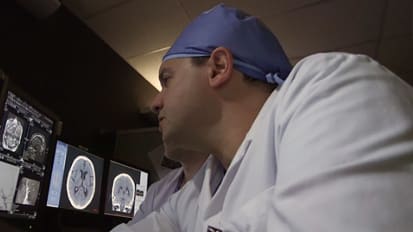
The uncommon lesion: Dural fistula
Arteriovenous dural fistulas are rare and often misdiagnosed. Giuseppe Lanzino, M.D., a neurosurgeon at Mayo Clinic's campus in Rochester, Minnesota, discusses the importance of detection and proper treatment options.
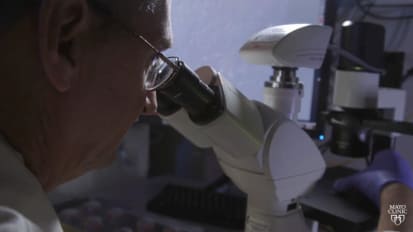
Unlocking the power of gene expression: Molecular classification of brain tumors
Mayo Clinic physicians and researchers discuss how the molecular makeup of brain tumors can be used to identify five categories of gliomas, each with different clinical features and outcomes.
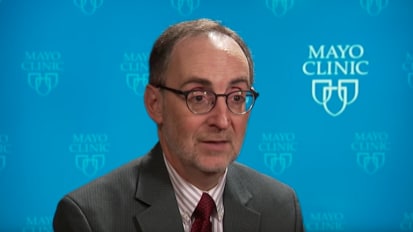
Mayo Clinic study finds no link between anesthesia exposure, mild cognitive impairment
A Mayo Clinic study of people who received anesthesia for surgery after age 40 found no association between the anesthesia and the development of mild cognitive impairment later in life.

Subarachnoid hemorrhage from ruptured brain aneurysm
Giuseppe Lanzino, M.D., and Alejandro A. Rabinstein, M.D., discuss treatment of patients with subarachnoid hemorrhages that result from ruptured brain aneurysms. This condition, one of the most complex acute conditions encountered in medicine, ...
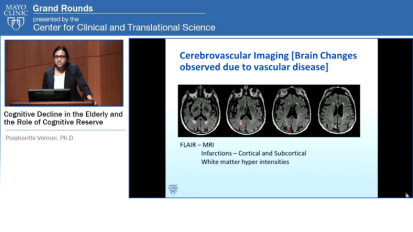
Grand Rounds: Cognitive Decline in the Elderly and the Role of Cognitive Reserve
Prashanthi Vemuri, Ph.D., presents Cognitive Decline in the Elderly and the Role of Cognitive Reserve.
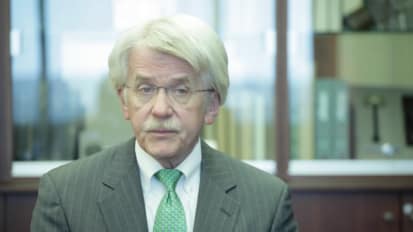
Is it dementia, or just normal aging? New tool may help triage
Ronald Petersen, M.D., Ph.D., discusses a new scoring system to help determine which elderly people may be at a higher risk of developing the memory and thinking problems that can lead to dementia.
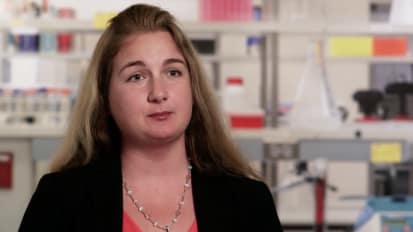
Mayo Clinic study of thousands of brains reveals tau as driver of Alzheimer's disease
By examining more than 3,600 postmortem brains, researchers at Mayo Clinic have found that the progression of dysfunctional tau protein drives the cognitive decline and memory loss seen in Alzheimer's disease.

Advancing the knowledge of ALS and FTD
Researchers at Mayo Clinic's campus in Florida have developed a mouse model that exhibits the features associated with the most common genetic form of ALS and frontotemporal dementia.